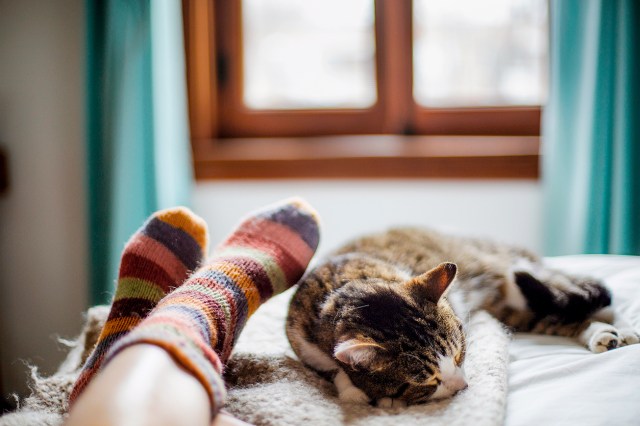There’s nothing like crawling into bed at the end of a long day to get some well-deserved zzz’s. But what happens when, hours later, when you still can’t fall asleep? Whether you find yourself tossing and turning at odd hours of the night or helplessly lying wide awake at 3 a.m., poor sleep patterns are an issue for many people. While there isn’t a one-size-fits-all reason why many of us wake up in the middle of the night, the stress hormone cortisol is a significant contributor.

How Cortisol Levels Affect Sleep
Cortisol is critical for regulating bodily functions, increasing metabolism, and controlling blood pressure. It also serves as the body’s internal alarm clock, telling you when to wake up and wind down. During the night, the body produces cortisol about two to three hours after sleep onset, reaching peak levels at the nine-hour mark.
However, when people suffer from stress and anxiety throughout the day, cortisol levels have already spiked before bedtime. Your cortisol will peak long before the nine-hour mark, prematurely signaling to the brain that it’s time to wake up. The exact timing depends on each sleep schedule, but if you fall asleep at midnight, you will wake up around 3 a.m. when the body starts producing new cortisol to supplement your high cortisol levels.

How to Reset Your Sleep Patterns
Thankfully, there are ways to lower your stress level to help prevent you from waking up in the middle of the night. One of the simplest ways is taking two short walks each day — one shortly after waking up and the other around sunset. Beginning the day with a light 20- or 30-minute walk helps lower the cortisol levels built up during the night while taking one after a busy day helps you calm down and reset your stress levels.
Scheduling two separate 10-minute meditation or relaxation sessions each day may also be what you need to keep your cortisol levels down before bedtime. Find an activity that puts you at ease, such as yoga, knitting, or sitting quietly. This time helps regulate the body’s cortisol levels, preventing them from reaching levels that may affect your sleep schedule later.
Featured Image Credit: miniseries/ iStock
More From Our Network
Better Report is part of Inbox Studio, an email-first media company. *Indicates a third-party property.














